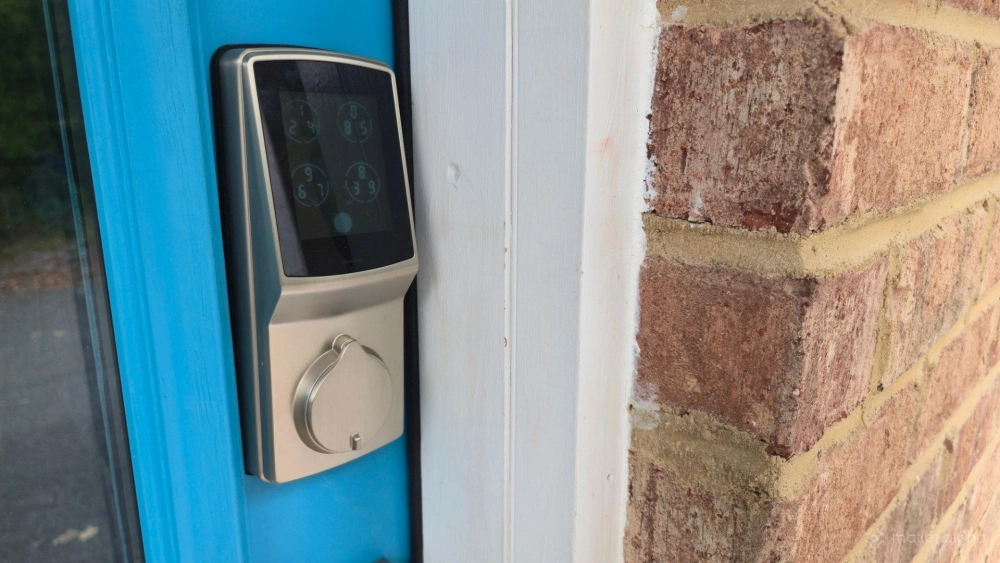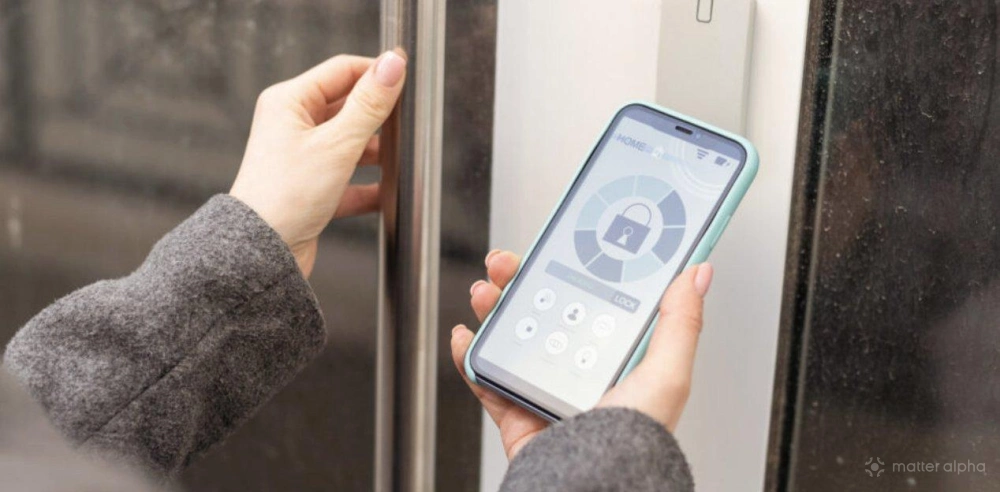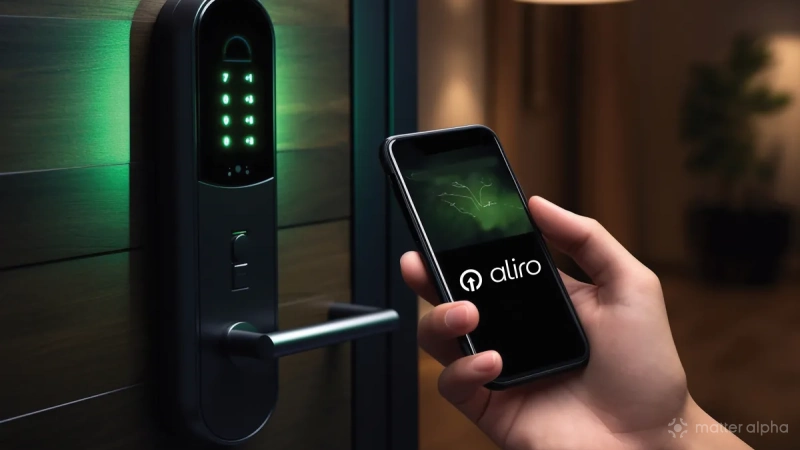Smart locks are increasingly ubiquitous, granting us access to our homes and businesses without needing a physical key. But while entering a PIN or tapping a fingerprint is straight-forward—carrying around a digital key or using an app is not. Aliro is an effort to change that, one that goes hand-in-hand with Matter.
What is the Aliro protocol?
Aliro is a project to bring a common standard to smart locks and to make locks compatible with Matter. Imagine being able to control any smart lock from your existing smart home app or to be able to open the door using a digital key stored in your existing digital wallet, whether that be stored on your phone or smartwatch.
The Aliro working group is part of the Connectivity Standards Alliance, the same organization behind Matter. The initiative is a collaborative project that already has buy-in from the phone-making tech giants like Apple, Google, and Samsung. On the microchip side of things, there’s Qualcomm and NXP. Smart home companies like Aqara are already developing Aliro-compatible products behind the scenes. Allegion (the company behind Schlage) and Assa Abloy (Yale) are also onboard.
What problem is Aliro trying to solve?
If you buy two smart locks from different brands, you can expect to install two different apps. There’s also a good chance the locks will only work with these two bespoke apps and not integrate directly with your preferred smart home app.
My Lockly locks only work with the Lockly app. Some locks, like the Schlage Sense Pro unveiled at CES 2025, are compatible with specific smart home ecosystems—in this case Alexa and Google Home. That does me no good, since we use Samsung SmartThings and Home Assistant in my home.
If the lock supports using your phone as a digital key, it will likely only support a few phones (and those phones will likely be iPhones).
This is a headache, and it’s all a roadblock to wide adoption.
What is the difference between Aliro and Matter?
Aliro is a common standard specific to smart locks. It could someday replace the need for lock manufacturers to create their own custom software, and it would allow functionality to be consistent across locks, much like tapping a phone against a terminal now makes payments in the same way regardless of whether you’re at the grocery store, a farmer’s market, or boarding a train. Aliro will also integrate with Matter, making locks accessible from any Matter controller and, by extension, your preferred smart home app.
Why is Aliro separate from Matter? Consider how a smart light can ship with Matter support and offer the ability to remotely control lights, dim them, and change colors, since all of those controls are baked directly into Matter. Smart locks are more complicated. They need to access more than smart hubs to provide features like a digital key, which is why a separate standard is needed. Aliro can focus on locks in a way Matter cannot.
How does Aliro work?

Aliro follows on the heels of Apple Home Key, which allows you to unlock locks via your iPhone or Apple Watch. Aliro supports the use of NFC, Bluetooth Low Energy, and ultra-wide broadband—technologies various locks already utilize to communicate with phones.
Aliro will bring Apple Home Key-like functionality to phones from Google, Samsung, and others in a way that doesn’t involve each company creating their own solution. It can also expand the number of locks that support the feature. Aliro compatibility is already baked into Google Wallet. The iPhone 17 also has Aliro support.
For the time being, despite the expectation that 2025 would be Aliro’s big year, we’re still waiting on locks utilizing Aliro to hit the market. There’s plenty of behind-the-scenes work to deliver a more integrated and harmonious future for smart locks, but for now it remains just that.

